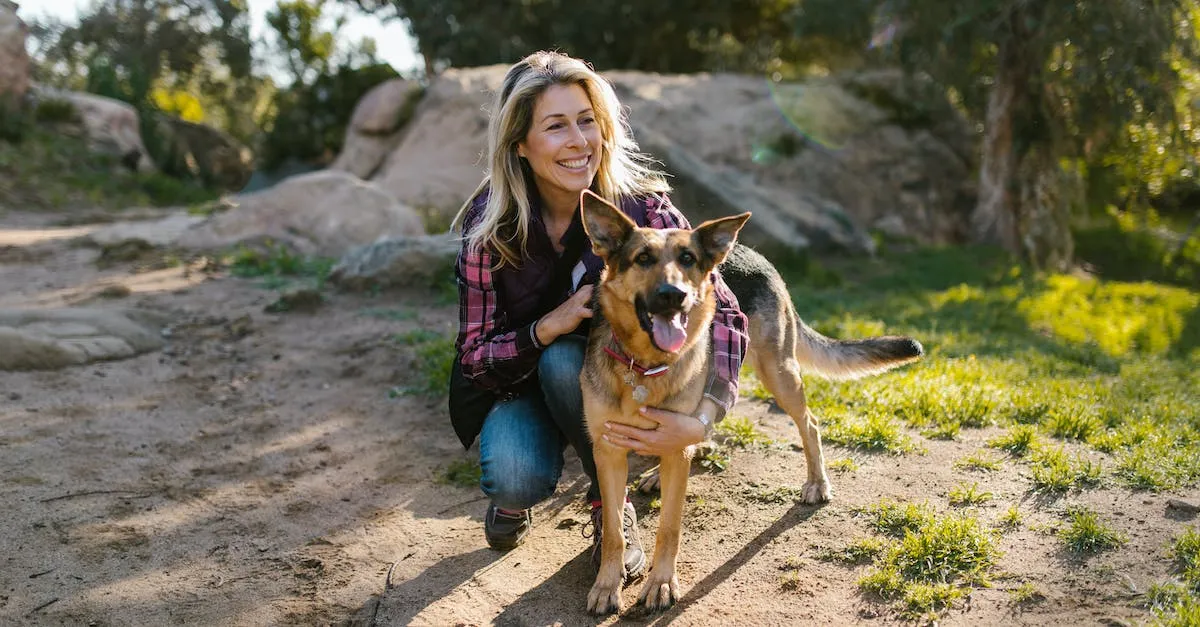Consequences Of Not Licensing Your Dog In California
Owning a dog comes with many responsibilities, one of which is licensing your furry friend. But what happens if you fail to license your pooch in the state of California? As a dog owner in California, you could face fines, impound fees, and other legal penalties if you don’t obtain the proper license for your dog each year.
If you’re short on time, here’s a quick answer to your question: Failure to license your dog each year in California can result in fines up to $500 per violation as well as impound fees and criminal charges if cited multiple times.
In this comprehensive guide, we will explore the licensing requirements in California, look at the fees and penalties for not licensing your dog, and outline the steps you need to take to get your dog properly licensed in compliance with state law.
California’s Dog Licensing Requirements
In California, it is mandatory for all dog owners to license their pets. This ensures that dogs are properly identified and their owners are held accountable for their actions. Failure to comply with these licensing requirements can lead to various consequences.
All dogs over 4 months must be licensed
In accordance with California state law, all dogs over the age of 4 months must be licensed. This applies to both purebred and mixed breed dogs. Licensing helps in the identification of dogs and ensures that they have received necessary vaccinations, reducing the risk of the spread of diseases.
Not licensing your dog can result in penalties such as fines and citations. These penalties can vary depending on the city or county in which you reside. It is important to check with your local animal control department or municipal office to understand the specific licensing requirements and penalties in your area.
Licenses must be renewed annually
In addition to obtaining a license for your dog, it is essential to renew it on an annual basis. This helps to ensure that your dog’s information is up to date and that they remain in compliance with the law. Failure to renew your dog’s license can lead to additional fines and penalties.
Renewing your dog’s license is typically a straightforward process. Your local animal control department or municipal office will provide you with the necessary instructions and paperwork. It is important to mark your calendar and renew your dog’s license before it expires to avoid any unnecessary consequences.
Fees depend on whether your dog is spayed/neutered
The fees for dog licenses in California vary depending on whether your dog is spayed or neutered. Spaying or neutering your dog not only helps control the pet population but also offers health benefits for your furry friend.
Many cities and counties offer reduced license fees for spayed or neutered dogs as an incentive for responsible pet ownership.
It is worth noting that the license fees collected are often used to support local animal control services and programs. By licensing your dog, you are contributing to the welfare of all animals in your community.
To learn more about the specific licensing requirements and fees in your area, visit the website of your local animal control department or municipal office. They will provide you with the most accurate and up-to-date information regarding dog licensing in your community.
Remember, licensing your dog is not just a legal obligation; it is a responsible action that helps ensure the safety and well-being of your beloved pet and the community as a whole.
Consequences of Not Licensing Your Dog
Licensing your dog is not only a legal requirement in California, but it also comes with a number of consequences for those who fail to comply. From hefty fines to criminal charges, dog owners who neglect to license their furry friends may find themselves facing various penalties.
Fines up to $500 per violation
One of the most immediate consequences of not licensing your dog in California is the possibility of facing fines. The fines for failing to license your dog can range from a few dozen dollars to up to $500 per violation, depending on the municipality.
These fines can quickly add up, putting a strain on your finances.
Licensing your dog not only helps fund animal control services, but it also ensures that your dog is up to date on vaccinations and serves as a form of identification if they ever get lost. By licensing your dog, you are not only complying with the law but also contributing to the well-being of your community.
Impound fees
In addition to fines, dog owners who fail to license their pets may also face impound fees if their dog is picked up by animal control. When an unlicensed dog is found, it is often taken to a local animal shelter, where the owner will need to pay impound fees to retrieve their pet.
These fees can vary depending on the length of stay and the specific shelter, but they can add up to a significant amount.
By licensing your dog, you not only avoid these impound fees but also ensure that your dog can be quickly and easily reunited with you if they ever go missing. Licensed dogs have their owner’s contact information readily available, making the process of reuniting them much smoother and less stressful.
Criminal charges
While it may seem extreme, failing to license your dog can even result in criminal charges in certain cases. Repeat offenders who knowingly disregard the licensing requirements may face misdemeanor charges, which can carry penalties such as probation, community service, or even jail time.
It’s important to remember that licensing your dog is not only a legal obligation but also serves to protect both your pet and the community. By licensing your dog, you are demonstrating responsible pet ownership and contributing to the overall safety and well-being of your local area.
How to License Your Dog in California
Having a dog as a pet comes with responsibilities, and one of them is ensuring that your furry friend is properly licensed. In California, licensing your dog is not only a legal requirement but also crucial for their safety and the well-being of the community.
Here are the steps you need to follow to license your dog in California:
Obtain license through county animal care and control
The first step in licensing your dog in California is to contact your local county animal care and control department. They are responsible for issuing dog licenses and can provide you with all the necessary information and forms required for the process.
You can visit their website or give them a call to inquire about the specific requirements and procedures.
Provide rabies vaccination certificate
When applying for a dog license, you will need to provide a valid rabies vaccination certificate. This certificate ensures that your dog has been vaccinated against rabies, a deadly viral disease that can be transmitted to humans.
It is essential for the health and safety of your dog and the community at large. If your dog is not yet vaccinated, make sure to schedule a visit to your veterinarian to get them vaccinated before applying for the license.
Pay licensing fee
Once you have completed the necessary paperwork and provided the required documentation, you will need to pay a licensing fee. The fee amount may vary depending on your location and the type of license you are applying for (e.g., annual, lifetime).
The licensing fee helps support various animal welfare programs and services provided by the county animal care and control department.
Remember, licensing your dog is not just a legal obligation, but it also has several benefits:
- Identification: A license tag attached to your dog’s collar helps identify them if they ever get lost. It increases the chances of being reunited with your beloved pet.
- Community Safety: Licensed dogs are more likely to be up-to-date on vaccinations, including rabies. This helps prevent the spread of diseases and ensures the safety of other animals and humans they may come into contact with.
- Supporting Animal Care: Licensing fees contribute to funding animal care and control services in your community. These services include sheltering stray or abandoned animals, providing veterinary care, and promoting responsible pet ownership.
So, don’t delay! Take the necessary steps to license your dog in California and be a responsible pet owner. For more information, you can visit the Los Angeles County Animal Care and Control or San Diego County Animal Services websites.
Tips for Staying Compliant
Put license tag on dog’s collar
One of the easiest and most important steps you can take to ensure you’re in compliance with dog licensing laws in California is to make sure your dog wears a license tag on its collar at all times. This tag serves as a visual indicator that your dog is licensed and helps authorities quickly identify your pet in case it gets lost.
It’s a small but significant way to show your commitment to responsible pet ownership.
Keep rabies vaccinations up-to-date
In many states, including California, keeping your dog’s rabies vaccinations up-to-date is a legal requirement. Not only is this crucial for the health and safety of your pet, but it also plays a role in maintaining public health.
Rabies is a serious disease that can be transmitted to humans, and vaccinating your dog helps prevent the spread of the virus. By staying on top of your dog’s vaccinations, you not only comply with the law but also protect your furry friend and the community.
Renew license annually
Renewing your dog’s license annually is an essential part of staying compliant with licensing laws in California. Licenses typically expire after a year, so it’s important to mark your calendar and ensure you renew it on time.
This renewal process allows you to update your contact information and provide proof of any necessary vaccinations or changes in ownership. By promptly renewing your dog’s license, you avoid potential fines or penalties and demonstrate your commitment to being a responsible dog owner.
Remember, licensing your dog not only ensures you are following the law, but it also provides numerous benefits for both you and your furry friend. Licensed dogs are more likely to be returned to their owners if they get lost, as the license tag serves as a form of identification.
Additionally, licensing fees often support local animal shelters, vaccination programs, and other initiatives that benefit the community as a whole.
For more information on dog licensing laws in California, you can visit the official website of the California Department of Public Health: https://www.cdph.ca.gov/Programs/CEH/DRSEM/Pages/DCDC.aspx.
Conclusion
As a responsible pet owner in California, it is imperative that you license your dog every year as required by state law. Failing to do so can lead to expensive fines and even criminal prosecution. Licensing helps reunite lost pets with their owners and provides funding for animal shelters and control programs.
Don’t put it off until next year. Follow the straightforward steps to license your dog right away. Keep the license tag on your dog’s collar and make sure to renew on time annually. By properly licensing your furry friend, you’ll avoid penalties and fees while complying with California’s regulations for dog ownership.








